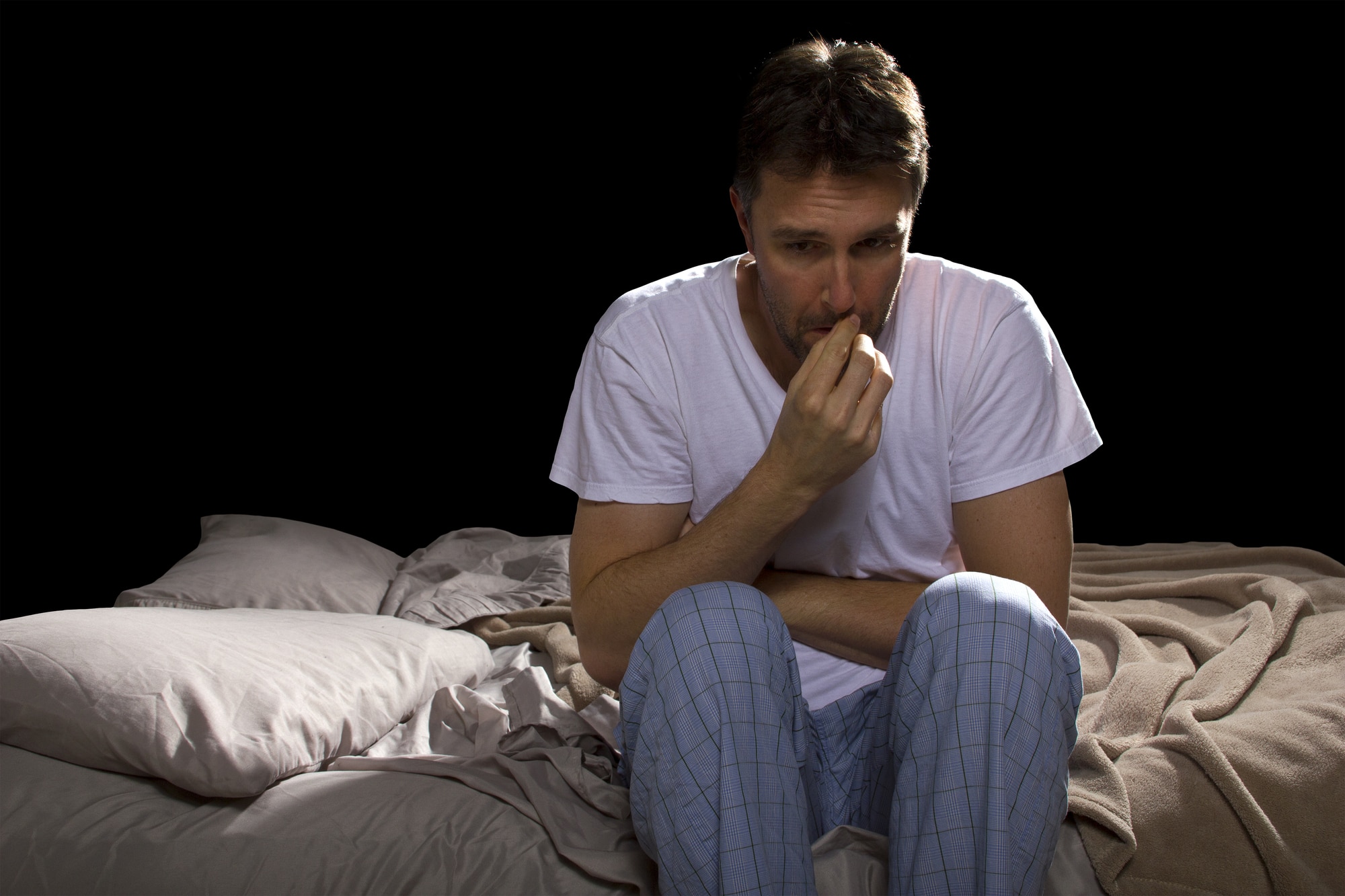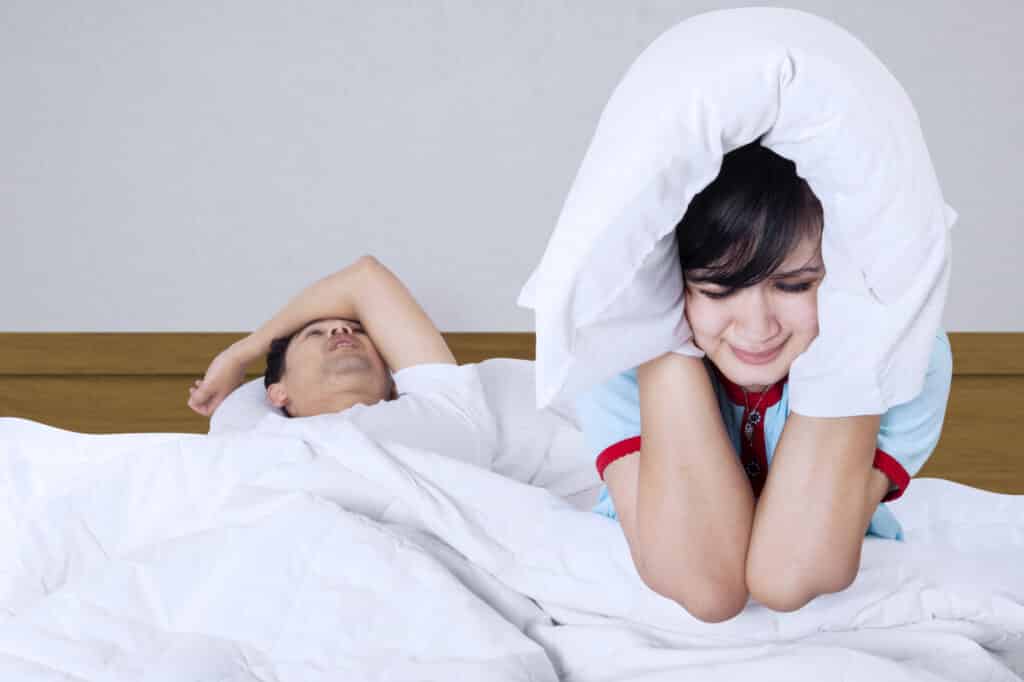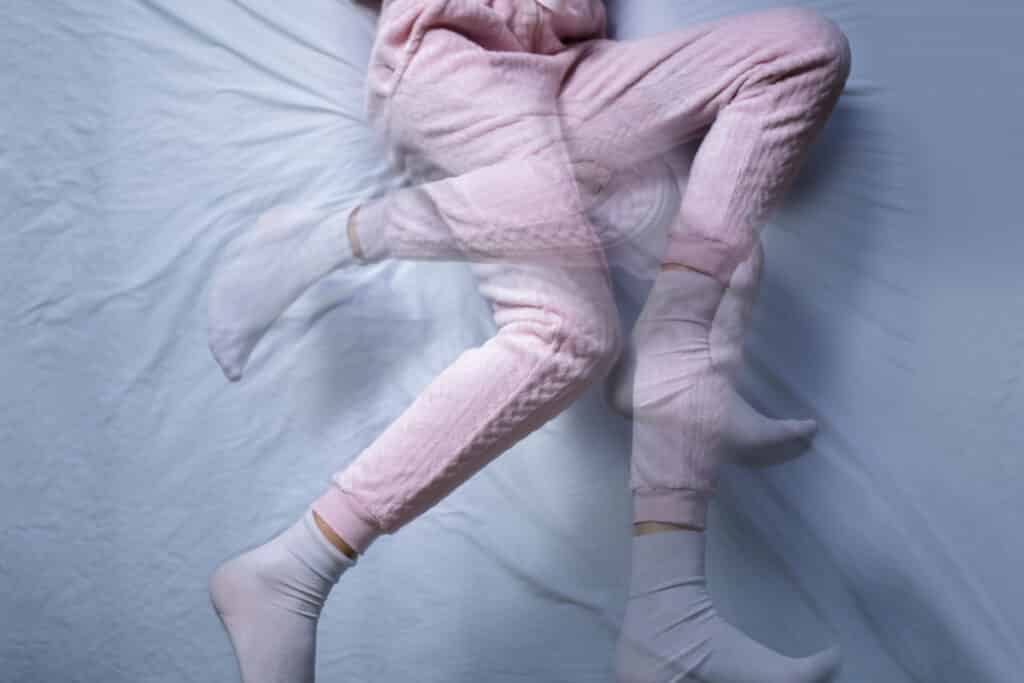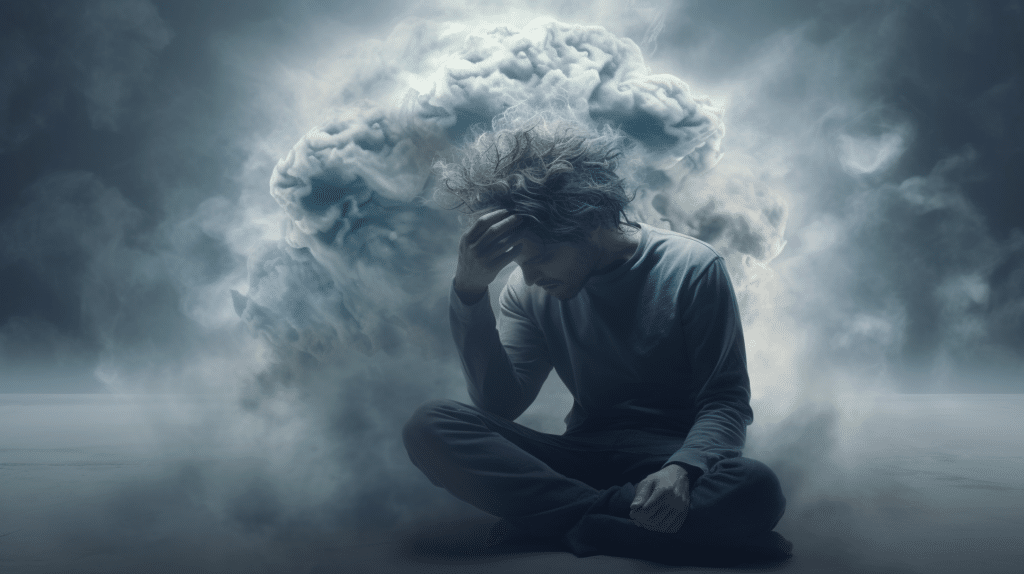Sleep plays a crucial role in our overall well-being, particularly when it comes to mental health. Extensive research has shown that there is a strong link between sleep and mental health, with sleep disturbances often exacerbating existing mental health conditions or even contributing to the development of new ones. Understanding this relationship is essential for both individuals experiencing mental health issues and healthcare professionals seeking effective treatment strategies.
The importance of sleep for mental well-being cannot be overstated. Adequate sleep allows the brain to perform vital functions such as memory consolidation, emotional regulation, and cognitive processing. However, disrupted or insufficient sleep can have detrimental effects on these processes, leading to various mental health problems such as depression, anxiety disorders, and bipolar disorder. Furthermore, the impact of poor sleep on mental health goes beyond just the individual’s psychological state; it also affects their social functioning and quality of life. Therefore, exploring the connection between sleep and mental health is crucial in order to develop comprehensive approaches for promoting better sleep habits and ultimately improving overall mental well-being.
The Importance of Sleep for Mental Well-being
The significance of sleep in maintaining optimal mental well-being cannot be overstated. Sleep plays a crucial role in various cognitive processes, including memory and creativity. Adequate sleep is essential for consolidating memories and enhancing learning. During sleep, the brain processes information obtained during wakefulness, strengthening neural connections that contribute to memory formation. Research has shown that individuals who get sufficient sleep tend to have better recall abilities and improved problem-solving skills compared to those who are sleep-deprived.
Furthermore, sleep is also closely linked to creativity. Studies have found that sleep can enhance divergent thinking, which is an important aspect of creative thinking. Divergent thinking involves generating multiple solutions or ideas and is fundamental for problem-solving and innovation. Getting enough sleep allows the brain to make novel connections between different pieces of information stored in memory, leading to more innovative ideas.
Adequate sleep is crucial for maintaining optimal mental well-being. It directly impacts cognitive functions such as memory and creativity. By understanding the importance of sleep in relation to these aspects, individuals can prioritize obtaining sufficient restful sleep to support their overall mental health and well-being.
Understanding the Link Between Sleep and Mood

Understanding the connection between quality of sleep and emotional well-being remains a critical area of research. Sleep patterns have been shown to significantly impact an individual’s mood, with disruptions in sleep often leading to mood swings and negative affect. Numerous studies have found that individuals who experience poor sleep quality or insufficient sleep tend to exhibit higher levels of irritability, anxiety, and depression.
One possible explanation for the link between sleep patterns and mood swings is the effect of sleep on neurotransmitters in the brain. During sleep, the brain undergoes various processes that help regulate emotions and stabilize mood. Adequate sleep allows for the proper functioning of neurotransmitters such as serotonin, dopamine, and norepinephrine, which play crucial roles in regulating mood. Disruptions in these neurotransmitter systems can lead to imbalances that contribute to emotional dysregulation.
Another factor contributing to the relationship between sleep and mood is the impact of poor sleep on cognitive processes. Lack of sufficient restorative sleep impairs attention, memory, and executive functions, all of which are essential for regulating emotions effectively. When individuals are deprived of adequate restorative sleep, they may find it challenging to process emotions appropriately or regulate their responses to stressors.
Understanding how sleep patterns influence emotional well-being is crucial in promoting mental health. The link between disrupted or inadequate sleep and mood swings highlights the importance of prioritizing good sleeping habits for individuals’ overall psychological well-being. Further research into this complex relationship is needed to fully comprehend the mechanisms underlying this connection and develop effective interventions targeting both improved quality and quantity of sleep as potential strategies for managing emotional dysregulation.
Cognitive Effects of Sleep Deprivation
One potential consequence of inadequate sleep is the impairment of cognitive functioning. Numerous studies have shown a clear link between sleep deprivation and cognitive performance. When individuals do not get enough sleep, their ability to concentrate, pay attention, and make decisions can be significantly affected. Sleep deprivation has been found to impair working memory, which is crucial for processing information in real-time and completing complex tasks. Additionally, lack of sleep has been associated with reduced creativity and problem-solving abilities.
Sleep patterns also play a role in cognitive performance. Disrupted or irregular sleep schedules can lead to difficulties in maintaining optimal cognitive function. Research suggests that individuals who consistently experience poor-quality or insufficient sleep are more likely to have slower reaction times and decreased alertness during waking hours. Moreover, chronic sleep problems have been linked to an increased risk of developing cognitive disorders such as Alzheimer’s disease later in life.
Overall, it is evident that adequate sleep is essential for maintaining optimal cognitive performance. The impairment of cognitive functioning due to inadequate sleep can have significant consequences on various aspects of daily life, including work productivity, academic performance, and overall well-being. Therefore, prioritizing good sleep hygiene practices and establishing regular sleep patterns are vital for promoting optimal cognitive health and overall mental well-being.
Strategies for Improving Sleep Quality
Implementing effective strategies can significantly enhance the quality of sleep and promote overall well-being. One strategy for improving sleep patterns is to establish a consistent sleep schedule. Going to bed and waking up at the same time every day helps regulate the body’s internal clock, making it easier to fall asleep and wake up naturally. Additionally, creating a relaxing bedtime routine can signal to the body that it is time to wind down and prepare for sleep. This may include activities such as reading a book, taking a warm bath, or practicing relaxation techniques like deep breathing or meditation.
Another strategy for improving sleep quality is optimizing the sleep environment. A comfortable and conducive sleeping environment can greatly impact the ability to achieve restful sleep. Keeping the bedroom dark, cool, and quiet can help create an ideal setting for optimal rest. Additionally, minimizing exposure to electronic devices before bed is essential as they emit blue light that interferes with melatonin production, making it harder to fall asleep. Creating a calming atmosphere by removing clutter and distractions from the bedroom can also contribute to better sleep quality.
Assessing one’s own sleep patterns is another important step in improving sleep quality. Keeping a sleep diary or using wearable technology that tracks sleep metrics can provide valuable insights into individual sleeping habits. By identifying any patterns of poor-quality or disrupted sleep, individuals can then make necessary adjustments in their routines or seek professional guidance if needed.
Overall, implementing these strategies and regularly assessing one’s own sleep patterns are crucial steps towards achieving improved overall well-being through enhanced quality of sleep.
Sleep Hygiene: Creating a Healthy Sleep Routine
Creating and maintaining a consistent sleep routine is essential for establishing healthy sleep hygiene and optimizing overall well-being. Healthy sleep habits involve creating a bedtime routine that promotes relaxation and signals to the body that it is time to wind down. This routine should be consistent, occurring at the same time each night, and include activities that promote restfulness such as reading a book or taking a warm bath. By following a regular bedtime routine, individuals can train their bodies to associate these activities with sleep, making it easier to fall asleep quickly and stay asleep throughout the night.
In addition to establishing a consistent bedtime routine, there are several other strategies that can contribute to improving sleep hygiene. These include creating an optimal sleep environment by keeping the bedroom cool, quiet, and dark; avoiding electronic devices before bed as the blue light emitted can disrupt melatonin production; limiting caffeine intake in the afternoon and evening; and engaging in regular physical activity during the day to promote better quality sleep at night. By incorporating these practices into one’s daily life, individuals can create a healthy sleep routine that enhances their overall well-being.
Managing Stress and Anxiety Through Better Sleep

Managing stress and anxiety can be achieved through the establishment of a consistent and healthy sleep routine, which involves creating an optimal sleep environment, avoiding electronic devices before bed, limiting caffeine intake, and engaging in regular physical activity. Stress management is crucial for maintaining mental well-being, and sleep plays a vital role in this process. By following a bedtime routine that promotes relaxation and restful sleep, individuals can effectively manage their stress levels.
Creating an optimal sleep environment is essential for managing stress and anxiety. This includes ensuring that the bedroom is quiet, dark, and at a comfortable temperature. It is also important to have a supportive mattress and pillow that promote proper spinal alignment. Additionally, avoiding electronic devices before bed is crucial as they emit blue light that can disrupt the body’s natural sleep-wake cycle. Instead of using electronic devices, engaging in activities such as reading or practicing relaxation techniques like deep breathing or meditation can help calm the mind before sleep.
Limiting caffeine intake throughout the day can also contribute to better stress management through improved sleep quality. Caffeine is a stimulant that can interfere with falling asleep and staying asleep if consumed close to bedtime. It is recommended to avoid caffeinated beverages such as coffee or energy drinks at least six hours before bed to allow enough time for its effects to wear off. Engaging in regular physical activity during the day can also aid in reducing stress levels and promoting better sleep at night. Exercise has been shown to increase endorphin levels, reduce anxiety symptoms, and improve overall mood – all of which are beneficial for managing stress effectively.
Managing stress and anxiety through better sleep involves establishing a consistent bedtime routine that prioritizes creating an optimal sleep environment, avoiding electronic devices before bed, limiting caffeine intake, and engaging in regular physical activity. By incorporating these strategies into one’s daily life, individuals can enhance their ability to cope with stress while improving their overall mental well-being.
Sleep Disorders and Mental Health Conditions
Sleep disorders and mental health conditions have a complex relationship that can significantly impact an individual’s overall well-being. Numerous studies have shown a bidirectional association between sleep disorders and mental health issues. On one hand, individuals with mental health conditions are more likely to experience sleep disorders such as insomnia, sleep apnea, or restless legs syndrome. For example, anxiety and depression have been linked to difficulties falling asleep or staying asleep throughout the night. This can lead to chronic sleep deprivation, which in turn worsens the symptoms of these mental health conditions.
On the other hand, sleep disorders themselves can also contribute to the development or exacerbation of mental health problems. Lack of quality sleep can negatively affect mood regulation, cognitive function, and emotional stability. Sleep deprivation impairs the brain’s ability to process emotions effectively and may increase vulnerability to stressors and emotional challenges. Moreover, chronic insomnia has been associated with a higher risk of developing psychiatric disorders such as depression or anxiety over time.
Understanding the interplay between sleep disorders and mental health is crucial for effective treatment strategies. Addressing both aspects simultaneously is essential for promoting better overall well-being in individuals struggling with these issues. By recognizing and treating underlying sleep disorders in patients with mental health conditions, healthcare professionals can potentially improve symptom management and enhance therapeutic outcomes for their patients. Similarly, addressing mental health concerns in individuals with sleep disorders may help alleviate associated symptoms by improving their overall psychological state.
The Role of Sleep in Emotional Regulation
Sleep disorders and mental health conditions are often closely intertwined, with one frequently exacerbating the other. However, it is not just the presence of sleep disorders that can negatively impact mental health; even a lack of quality sleep can have detrimental effects. One important aspect of this relationship between sleep and mental health is the role that sleep plays in emotional regulation. Emotional regulation refers to the ability to manage and control one’s emotions effectively, and research has shown that adequate sleep is crucial for this process.
The role of sleep in emotional regulation can be understood through its impact on memory consolidation. During sleep, our brains process and consolidate memories from the day, including emotional experiences. This consolidation process helps us make sense of our emotions and integrate them into our overall understanding of ourselves and the world around us. Without sufficient sleep, this process may be disrupted, leading to difficulties in regulating emotions. Additionally, studies have shown that lack of sleep can impair decision-making abilities, which further contributes to poor emotional regulation. When we are tired, we may be more prone to impulsive behaviors or have difficulty evaluating situations accurately, both of which can hinder effective emotion management. Therefore, ensuring adequate and high-quality sleep is essential for maintaining optimal emotional well-being.
Sleep and Productivity: Enhancing Cognitive Performance
Enhancing cognitive performance can be achieved through optimizing sleep patterns and quality. Sleep plays a crucial role in maintaining optimal brain function, including attention, focus, and alertness. Research has consistently shown that lack of sleep or poor sleep quality can impair cognitive performance, leading to decreased productivity and increased errors.
One way in which sleep enhances cognitive performance is by enhancing focus. When we are well-rested, our ability to concentrate on tasks is improved. This allows us to stay engaged and focused for longer periods of time, resulting in higher productivity. On the other hand, insufficient sleep can lead to difficulties in sustaining attention and staying focused on tasks. This can result in reduced efficiency and effectiveness in completing work-related activities.
Additionally, adequate sleep is important for increasing alertness during waking hours. Alertness refers to the state of being awake and attentive. It is closely linked to cognitive performance as it enables individuals to process information quickly and accurately. Lack of sleep has been found to impair alertness levels, making individuals more prone to lapses in attention and slower reaction times. In contrast, getting enough high-quality sleep has been associated with improved alertness levels throughout the day.
Optimizing sleep patterns and quality is essential for enhancing cognitive performance. By ensuring adequate amounts of restful sleep, individuals can experience improvements in their focus and alertness levels during waking hours. This ultimately leads to increased productivity and better overall cognitive functioning.
Seeking Professional Help for Sleep and Mental Health Issues
Seeking professional assistance for issues related to sleep and mental well-being can be beneficial in promoting overall cognitive functioning and productivity. When individuals experience persistent difficulties with sleep or mental health, it is important to consult a healthcare professional who specializes in these areas. These professionals are trained to assess the specific needs of each individual and provide appropriate therapy options tailored to their unique circumstances.
Professional treatment for sleep and mental health issues typically involves a comprehensive evaluation of the individual’s symptoms, medical history, and lifestyle factors that may contribute to their difficulties. This evaluation may include various assessments such as sleep diaries, questionnaires, and interviews. Based on the findings, healthcare professionals can recommend different therapy options that may include cognitive-behavioral therapy (CBT), medication management, or a combination of both. CBT has been shown to be particularly effective in addressing sleep disorders by targeting maladaptive thoughts and behaviors that interfere with healthy sleep patterns. Medication management may also be considered in certain cases where pharmacological interventions are necessary to address underlying physiological imbalances.
Seeking professional help for sleep and mental health issues is crucial for promoting overall cognitive functioning and productivity. Healthcare professionals specializing in these areas can conduct thorough evaluations and offer tailored therapy options such as CBT or medication management based on individual needs. By addressing these issues through professional treatment, individuals can improve their sleep quality, enhance mental well-being, and ultimately boost their cognitive performance in various aspects of life.
Conclusion
In conclusion, sleep plays a crucial role in maintaining mental well-being and overall cognitive functioning. The link between sleep and mood is undeniable, as inadequate sleep can lead to negative emotions and increased risk of mental health conditions. Sleep deprivation also affects cognitive processes, such as attention, memory, and decision-making abilities. Therefore, it is essential to prioritize good sleep hygiene and establish healthy sleep routines.
Improving sleep quality can be achieved through various strategies such as creating a comfortable sleeping environment, sticking to a consistent bedtime routine, avoiding stimulants before bed, and practicing relaxation techniques. It is important to recognize that certain sleep disorders are closely associated with mental health conditions. Seeking professional help from healthcare providers or specialists in both fields may be necessary for individuals experiencing persistent sleep problems or mental health issues.
Overall, prioritizing sufficient and quality sleep is vital for both physical and mental well-being. By understanding the connection between sleep and mental health, individuals can take proactive steps towards improving their sleeping habits for optimal cognitive performance and emotional regulation.


